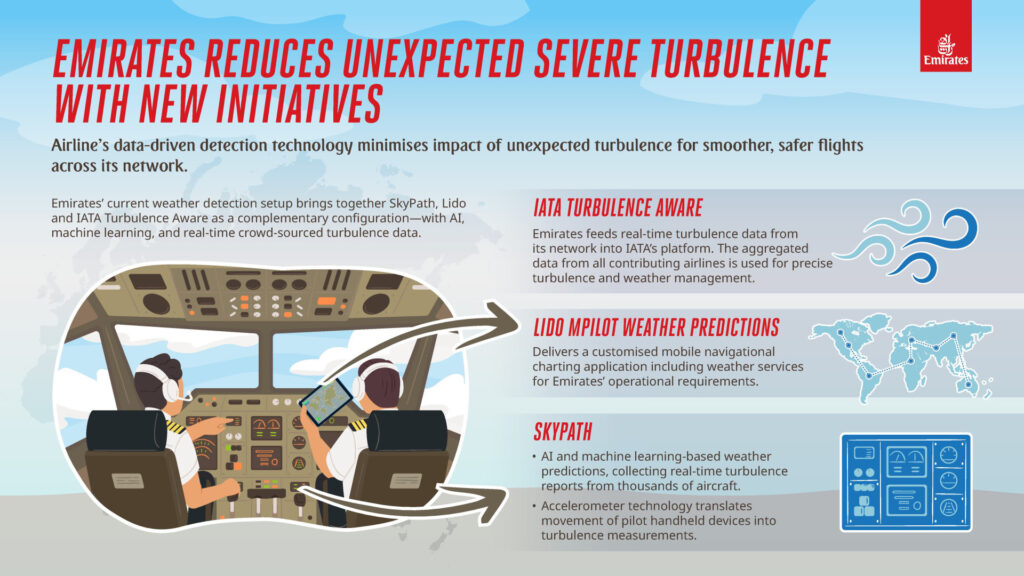Emirates Cuts Severe Turbulence Incidents with New Data-Driven Safety Systems
Emirates has significantly reduced unexpected severe turbulence encounters across its global network by adopting a multi-layered, data-driven forecasting system that supplies pilots with real-time, high-precision weather information.
With turbulence events rising worldwide due to changing climate patterns, the airline has shifted beyond traditional forecasting to advanced, AI-powered platforms, including IATA Turbulence Aware, Lido mPilot from Lufthansa Systems and SkyPath.
Captain Hassan Alhammadi, Divisional Senior Vice President for Flight Operations, said the new approach is already delivering measurable results.
“We recognise turbulence cannot be fully eliminated, but we are committed to minimising unexpected severe encounters through cutting-edge technology and industry collaboration. Over the past year, these systems have helped make journeys safer and more comfortable for our customers,” he said.
SkyPath uses machine learning, global crowd-sourced data and patented iPad accelerometer technology to detect turbulence areas that conventional systems often miss, including clear-air turbulence. Lido mPilot provides live cloud, icing and convection data, while IATA Turbulence Aware integrates global turbulence reports from participating airlines into pilots’ electronic flight bags, enabling informed rerouting decisions.
By combining these complementary systems, Emirates has enhanced cockpit situational awareness, improved passenger comfort and contributed valuable atmospheric data to global aviation safety efforts.
The airline says turbulence-reduction initiatives will continue to evolve as machine learning and predictive capabilities improve, supporting its wider strategy to enhance operational safety and fuel efficiency across long-haul routes.



